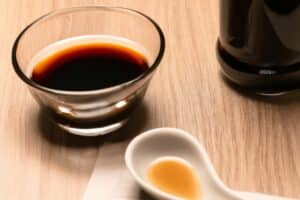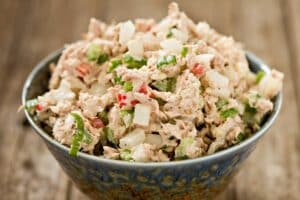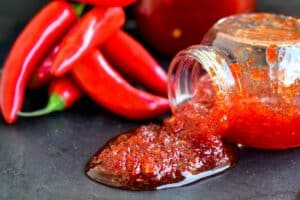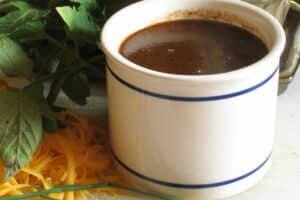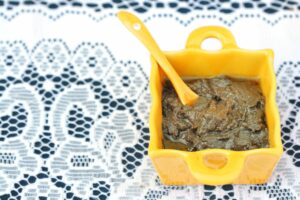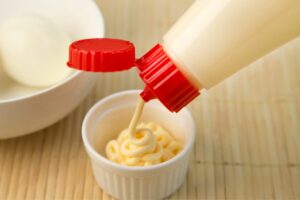There’s a reason why mashed potatoes is one of our favorite side dishes — they’re creamy, fluffy, and the perfect vehicle for gravy.
However, since butter contains a lot of fat and is not vegan, you might be searching for a good substitute to use in your recipe.
No need to worry. You can make mashed potatoes with other, healthier ingredients and still get that buttery consistency. The procedure is the same as adding butter — boil the potatoes and mash them, add your butter substitute of choice, milk, salt, and pepper, and simmer on low heat.
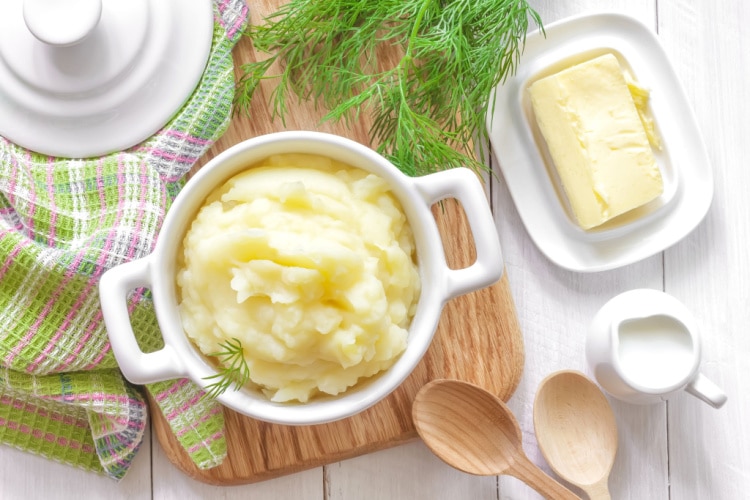
Butter Replacement for Mashed Potatoes
- Olive oil
- Ghee
- Avocado oil
- Canola oil
- Coconut oil
- Greek yogurt
1. Extra Virgin Olive Oil
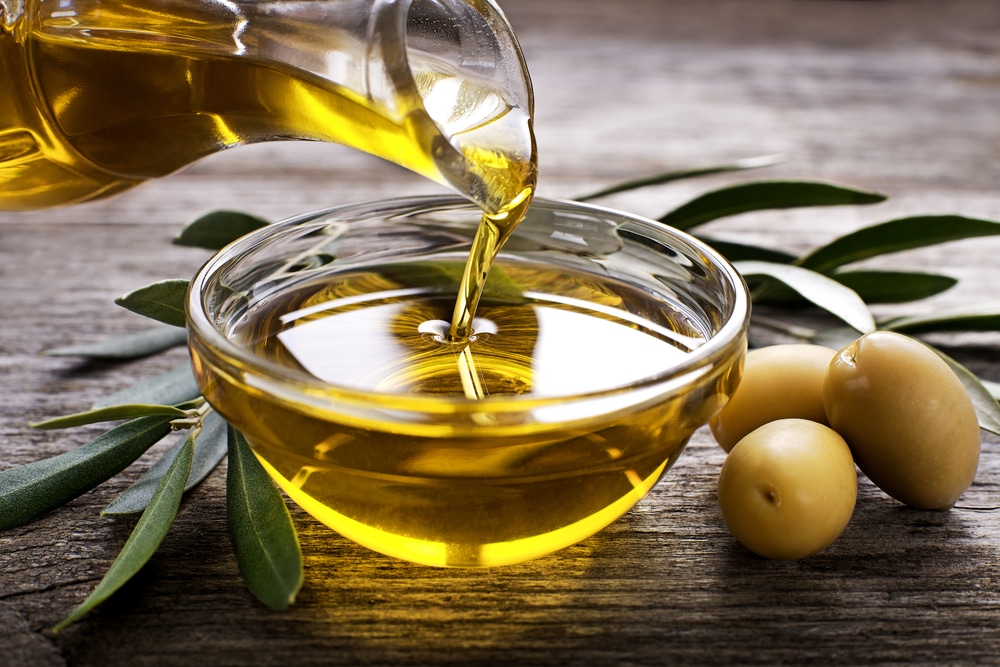
The least processed form of olive oil, extra virgin olive oil, is produced without any chemical solvents or additives, making it the healthiest option out of all olive oil varieties out there.
It’s the purest form of olive oil and contains the most health benefits, including a higher content of oleic acid, which aids in reducing inflammation.
Extra virgin olive oil is loaded with other powerful antioxidants such as vitamin E and other lesser-known compounds such as oleuropein. Oleuropein is a substance that has been shown to aid people with diabetes.
Extra virgin olive oil makes the texture of potatoes creamy and fluffy. It has a peppery, herbaceous flavor with a spicy aftertaste.
Mix ¼ cup extra virgin oil for every 2 lbs of potatoes.
2. Ghee
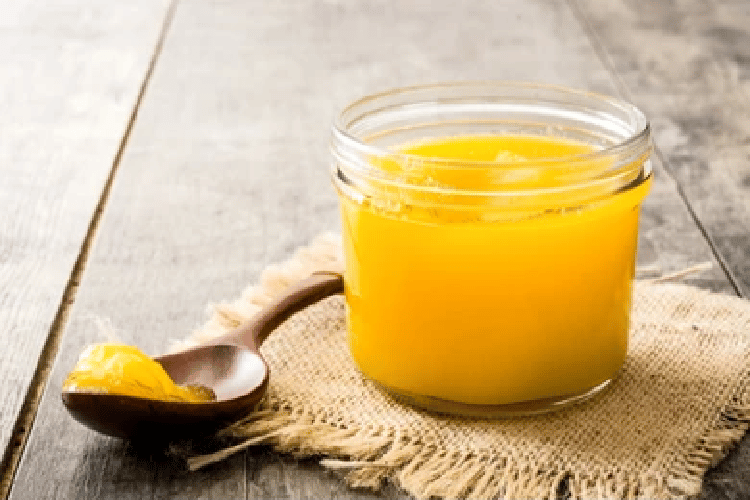
Ghee is packed with nutrients and is one of the healthiest fats you can use.
Clarified butter, or ghee, is a traditional Indian and Pakistani food staple. It contains antioxidants like vitamin E and butyric acid, lowering inflammation and enhancing the immune system.
Ghee is rich in heart-healthy fats, which makes it a better fatty option for diabetics. What’s more, ghee promotes weight loss, allowing us to burn more calories.
If you want to incorporate ghee in your mashed potatoes, use around 3 tbsp of ghee for 2 lbs of potatoes. Note that ghee might not give you the same creamy flavor as butter since the milk particles have been removed. Expect the aftertaste to be somewhat toasty and nutty.
3. Avocado Oil
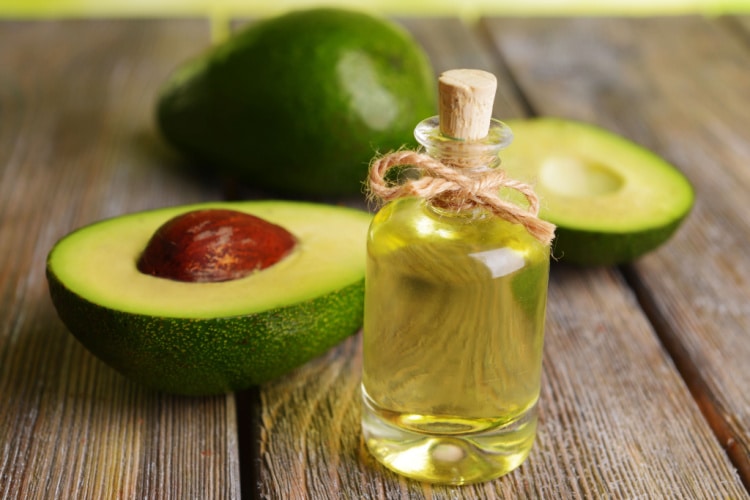
Avocados are a powerhouse of essential vitamins and minerals, and the oil derived from the fruit is just as nutritionally dense.
In fact, 70% of the oil comprises of oleic acid — the heart-healthy fatty acid that protects our cardiovascular health. Research has shown that people who consume avocado oil regularly experience a significant reduction in insulin, blood sugar, and markers of inflammation.
Avocado oil is also rich in vitamin E and antioxidants.
Mashed potatoes prepared with avocado oil have a deep, nutty, and mushroomy flavor, and their consistency is creamy and thick. When cooking mashed potatoes, 2 – 4 tbsp avocado oil per 2 lbs of potatoes should be enough.
4. Canola Oil
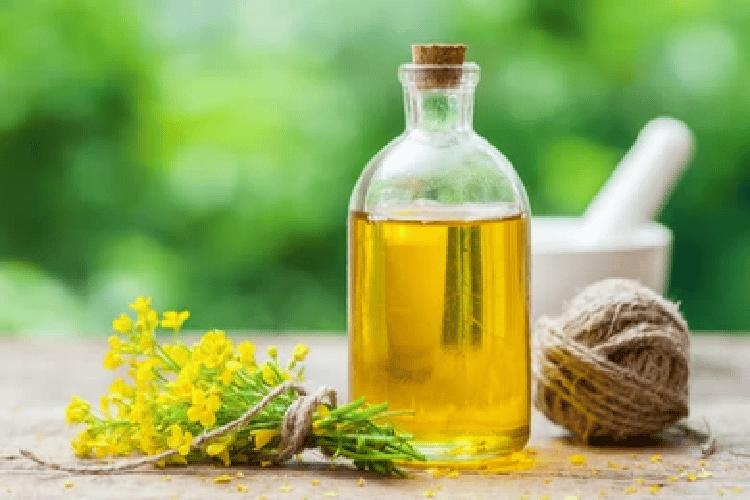
Canola oil is often used for frying and baking, and it’s also great with mashed potatoes.
Canola is a vegetable-based oil derived from the rapeseed plant. It’s the go-to cooking oil due to its light flavor, medium-high smoke point, and rich texture.
It contains less saturated fats than any other cooking oil — 2 tsp of canola oil has 9 g of fat, and only 0.5 g is saturated fat. On top of that, it carries phytosterols, which help our bodies absorb cholesterol.
Canola oil has a neutral flavor, making it ideal for people who prefer an alternative that won’t overpower their mashed potatoes.
You can use 3 tbsp of canola oil for 2 lbs of potatoes.
5. Coconut Oil
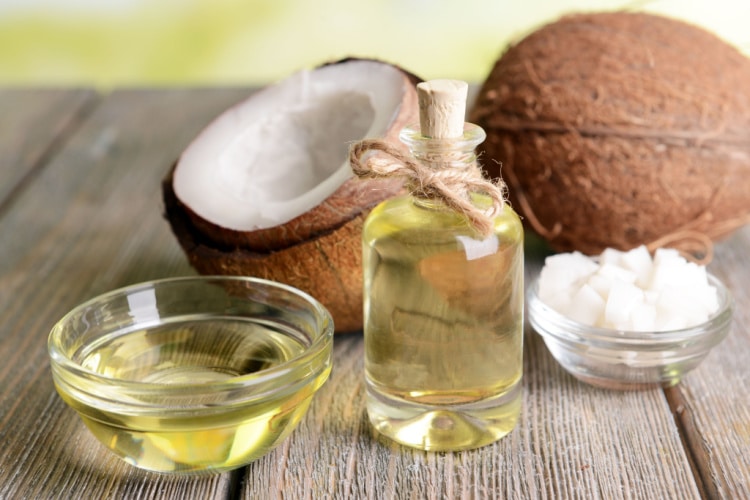
Coconut oil has a smoke point of 350 degrees Fahrenheit, meaning it won’t burn on high heat as butter does. It works well with meat, eggs, and our beloved mashed potatoes.
Coconut oil has plenty of amazing health benefits. It’s nutritious and assists with food digestion, eliminating bad bacteria and inflammation.
Coconut oil won’t make your mashed potatoes taste like coconut and will give the dish a similar texture as butter — creamy, thick, and fluffy.
However, a single tablespoon contains 117 calories, so when making mashed potatoes, use it in moderation — 2 tbsp of coconut oil for 2 lbs of potatoes should be enough.
6. Greek Yogurt
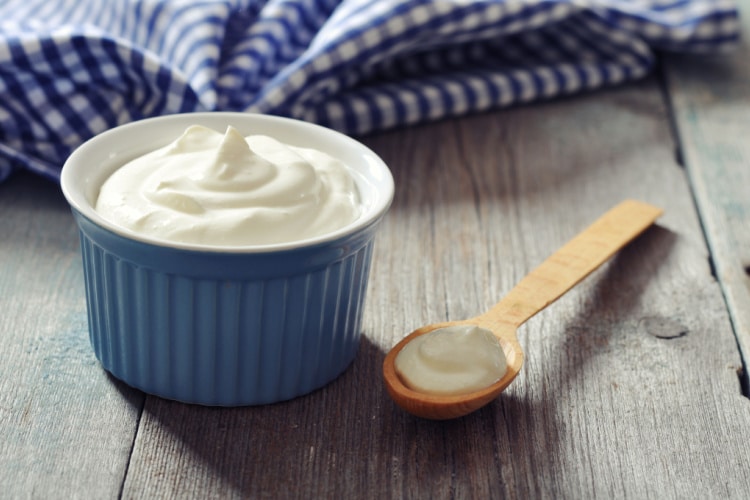
Greek yogurt has become increasingly popular in recent years and is often promoted as a healthy substitute for butter in mashed potatoes.
Greek yogurt is high in protein, which will help you feel fuller for longer. This means that Greek yogurt will benefit people who try to lose weight.
What’s more, greek yogurt is good for your gut due to the good bacteria it contains. These good bacteria are also known as probiotics, and they work by improving the balance of healthy bacteria in your gut.
Greek yogurt will add a bit of a tangy flavor to your potatoes. To avoid a runny consistency, pair it with another butter substitute, for instance, ghee.
The ratio is ½ cup Greek yogurt and 2 tbsp ghee for 2 lbs potatoes.
A Guide for Making the Best Mashed Potatoes
Now that you know the best alternatives to butter, it’s time to learn a few helpful preparation tips & tricks for making the best mashed potatoes.
Choose a Potato Variety Ideal for a Mash
If you want creamy and fluffy mashed potatoes, you must first select the best potatoes for mashing.
You can choose between two varieties:
- Russets — they are ideal for making light, fluffy mashed potatoes since they have a high starch content and low moisture content;
- Yukon Gold — they contain a medium level of starch and are more creamy than Russets, but they are not as fluffy;
For best results, use an equal combination of Yukon Gold and Russet potatoes.
Cut the Potatoes in Similar Sizes
It may seem as easy as heating the water where you’ll throw a handful of potatoes, but there is a little more to it than that. Cut the potatoes into similar-sized bits to prevent uneven cooking.
Don’t Add the Potatoes to Boiling Water
The potatoes should be in the water before it begins to boil. Also, make sure the water is cold when you start, so the potatoes cook evenly.
Don’t Over-Mash the Potatoes
Mashed potatoes should be creamy and airy, but if you over-mash, you’ll end up with gooey potatoes.
Despite the temptation of mixing your mash with a food processor or a hand mixer, the texture of mashed potatoes won’t benefit from it. Potato cells release starch when they’re broken, which makes it impossible to get that signature fluffy consistency.
Use a fork or a hand-held masher. Small batches work best with this technique. A stand mixer with a paddle attachment is a wonderful option if you’re cooking a large batch. The paddle won’t over-mash your potatoes and will prevent them from releasing excess starch.
Include More Flavor
You can improve the flavor of the final dish by simmering your potatoes with cream or milk and other ingredients like minced garlic, herbs, cheese, or bacon.
Add broth if you want extra flavor. Boiling potatoes in chicken or veggie broth will give them a ton of flavor. The boiling procedure is the same as cooking them with water.
Conclusion
You can still make creamy and delicious mashed potatoes without adding butter — all you need to do is pick your ideal butter substitute.
Ghee is the closest to butter in appearance, texture, and flavor. Extra virgin olive oil can give your mash a subtle spicy aftertaste.
Avocado oil tastes like avocado, and it’s a very nutritional substitute for butter. The same goes for coconut oil. Greek yogurt is ideal if you enjoy tangy flavors. If you don’t want an overpowering flavor, go for canola oil.
When making mashed potatoes, go for a mix of the Yukon Gold and Russet varieties, cut them into similar sizes, and add them to a pan of cold water. For a richer taste, boil them in broth instead of water.
Remember to not over-mash them. Pick other ingredients like herbs, spices, cheese, and bacon to make a mash that will make your guests and family want more.

